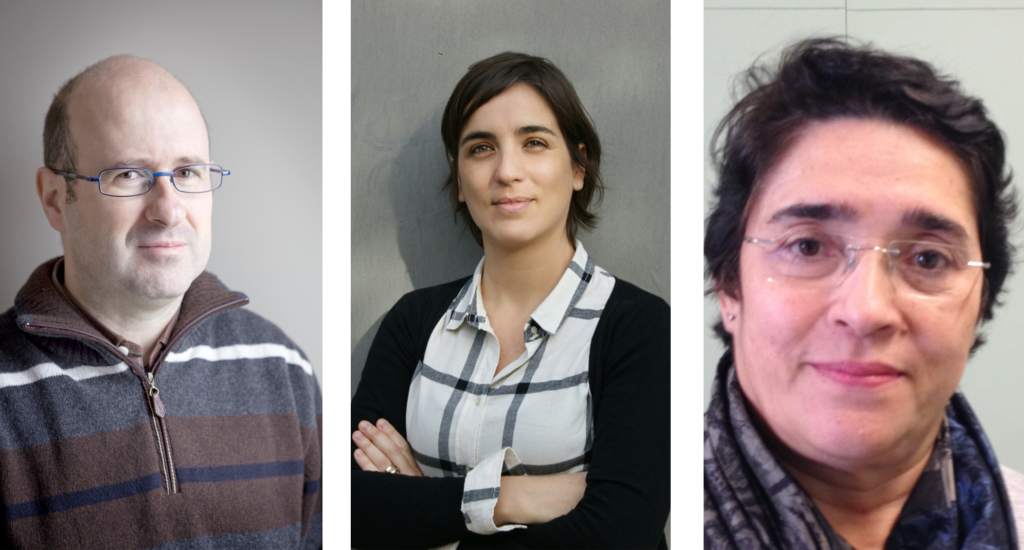
The cutting-edge bioengineering carried out at IBEC will be present in three of the projects that will seek solutions against COVID-19 thanks to funding from “La Marató de TV3 to COVID-19”. These projects with the leadership or participation of IBEC researchers have been selected among a total of 36 nominated projects of a total of 229 submitted proposals, in the latest edition of the popular fundraising campaign, which managed to gather, in total, almost 14 million euros.
Núria Montserrat, ICREA research professor and leader of the “Pluripotency for Organ Regeneration” group at the Institute for Bioengineering of Catalonia (IBEC), will receive 398,000€ from the 2020 edition of “La Marató” to lead the “SYSTORG” project, with which she will explore the conditions that lead to severe cases of COVID-19. To do this, Montserrat and her team will merge bioengineering and genetic editing techniques to create kidney organoids (cell cultures that at millimetre scale reproduce certain characteristics of the real organ). Through these approaches, the SYSTORG project will also use organ-on-a-chip platforms to emulate physiological conditions that can worsen the progression of COVID-19. In this way, SYSTORG will be able to reliably explore the changes that occur at the molecular and functional level in renal, vascular and gastric organoids using technologies such as single cell RNA sequencing.
Together with Núria Montserrat at IBEC, two international partners are participating in this project; the team led by Josef Penninger from the Institut Fuer Molekulare Biotechnologie GmbH (IMBA), and Ali Mirazimi, from the Karolinska Institutet. All of them have previously collaborated on other research projects on COVID-19, being pioneers in the derivation and use of renal and vascular organoids to understand early responses to SARS-CoV-2 infection.
“Thanks to the “Marató de TV3” we will be able to develop technologies that are necessary to look deeper into complex issues in the COVID-19 disease. In this sense, we want to investigate the molecular mechanisms that would explain why systemic conditions such as diabetes or hyperlipidemia are associated with a worse prognosis of COVID-19 by developing renal, vascular or gastric organoids”.
Nuria Montserrat, ICREA Research Professor and Group Leader at IBEC
On the other hand, Santiago Marco, leader of the group “Signal and information processing for sensing systems” at IBEC, and Professor at the University of Barcelona (UB), will also receive funding from La Marató to develop the “CoRespirOmics” project. Santiago Marco’s group together with the Fundació Institut Hospital del Mar d’Investigacions Mèdiques (which leads the project) aim to improve patient care processes and also determine what interventions can improve the condition of patients infected by coronavirus.
To do this, they will receive funding of 95,800 € for two years to be able to make a prediction of the respiratory prognosis in severe COVID-19 patients. The respiratory clinical evolution of COVID-19 is poorly understood, so identifying the metabolic pathways that are altered and their association with the failure of non-invasive ventilatory support (NIS) strategies is crucial to understanding the pathophysiology of COVID-19, to guide clinical decisions and determine therapeutic treatments.
“In this project we will use statistical and artificial intelligence techniques to discover characteristic metabolite patterns that allow a better understanding of the pathophysiology of the disease, and individualize and adapt ventilatory support based on the temporal evolution of these biomarkers.”
Professor Santi Marco, Group Leader at IBEC
Different metabolic patterns from specific pathways can predict non-invasive ventilatory support (NIS) failure in patients with COVID-19 pneumonia. These patterns could be associated with respiratory mechanics alterations in COVID-19 Acute Respiratory Distress Syndrome (ARDS). The objective of the project is to be able to create a diagnostic and therapeutic decision algorithm based on the different metabolic patterns of critical COVID-19 patients who need NIS due to ARDS.
Finally, the senior researcher Beatriz F. Giraldo, from the “Biomedical signal processing and Interpretation” group at IBEC and Professor at the Polytechnic University of Catalonia (UPC) will participate in a coordinated project, led by Dr. Arantxa Mas from IDIBELL and the Integrated Healthcare Consortium, in which the researchers aim to determine biomarkers of the respiratory patterns as dynamic predictors of poor evolution in patients with COVID-19. With this end, researchers intend to carry out a more precise follow-up that allows to predict the evolution of the behaviour of the respiratory system, and to advance in the treatment of patients with problems such as pneumonia derived from COVID-19, among others.
“We want to bring together the best information on the body’s response to the virus, based on physiological signals related to the lungs, heart and temperature, in order to have biomarkers that help us predict the evolution of the disease and define possible treatments. “
Beatriz F. Giraldo, senior researcher at IBEC





